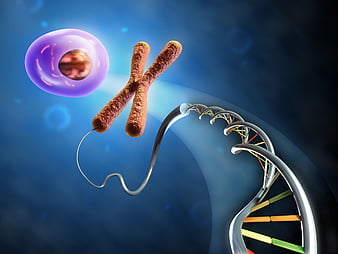PhD in Biological Sciences: Introduction, Admission, Registration, Eligibility, Duration, Fees, Syllabus 2024

Introduction:
Embark on an enriching journey of scientific exploration and discovery with our PhD program in Biological Sciences. This program offers a comprehensive and interdisciplinary approach to studying the complexities of life, from molecular mechanisms to ecosystem dynamics. Students in the Biological Sciences program engage in cutting-edge research, gain valuable laboratory and field experience, and collaborate with world-renowned faculty to address pressing questions in the field of biology.
Admission Process:
- Complete an online application form, including academic transcripts, letters of recommendation, and a statement of purpose.
- Participate in interviews or submit supplementary materials, as required.
- Admission decisions are based on academic qualifications, research experience, and alignment of interests with program faculty.
Eligibility:
- A bachelor's or master's degree in biology, biochemistry, molecular biology, ecology, or related fields.
- Strong academic background with coursework in biology, chemistry, mathematics, and relevant disciplines.
- Demonstrated research aptitude and passion for advancing knowledge in the biological sciences.
Completion Time:
The completion time for a PhD in Biological Sciences typically spans between 4 to 6 years, contingent upon various factors including research progress, dissertation requirements, and individual circumstances.
Career Opportunities:
- Research Scientist or Biologist in academic institutions, research laboratories, government agencies, or biotechnology companies.
- Environmental Consultant or Conservation Biologist working on ecosystem management and biodiversity conservation.
- Science Writer or Educator, translating complex biological concepts for broader audiences.
- Pharmaceutical or Biotech Industry Professional involved in drug discovery and development.
- Academic Faculty Member, teaching and conducting research at universities and colleges.
Syllabus:
- Core courses covering fundamental principles in biology, including genetics, cell biology, ecology, and evolution.
- Specialized coursework in areas such as molecular biology, bioinformatics, physiology, and ecology.
- Seminars, journal clubs, and workshops providing exposure to current research topics and methodologies.
Internship Opportunities:
- Access to internships in academic, industrial, or governmental settings, providing hands-on experience in biological research and application.
- Opportunities for fieldwork and laboratory placements to gain practical skills and network with professionals in the field.
Scholarship and Grants:
- Merit-based scholarships, fellowships, and assistantships may be available to support students' academic and research endeavors.
- Research grants and funding opportunities to support dissertation research and travel for conferences and fieldwork.
- Financial aid options and tuition assistance programs to help alleviate the financial burden of pursuing a PhD.
FAQs:
Can I apply with a non-biological background?
Yes, applicants from related fields such as chemistry, bioinformatics, or environmental science are encouraged to apply, provided they demonstrate a strong interest and aptitude for biological research.
Are there opportunities for interdisciplinary research?
Yes, our program encourages interdisciplinary collaboration, allowing students to work across disciplines and explore complex biological questions from multiple perspectives.
What research facilities and resources are available to students?
Our program provides access to state-of-the-art laboratories, field research sites, and cutting-edge equipment, as well as opportunities to collaborate with faculty and researchers on ongoing projects.
